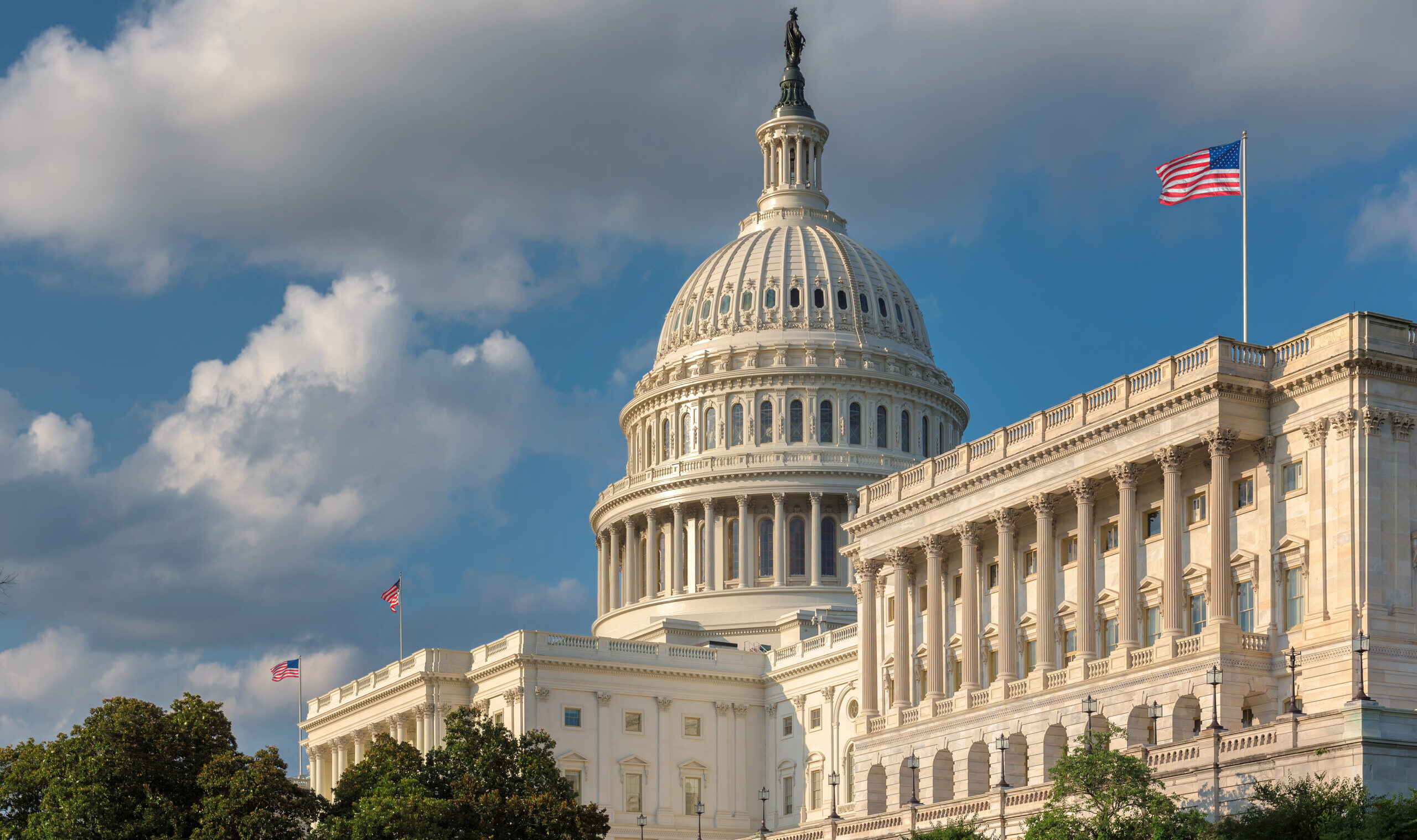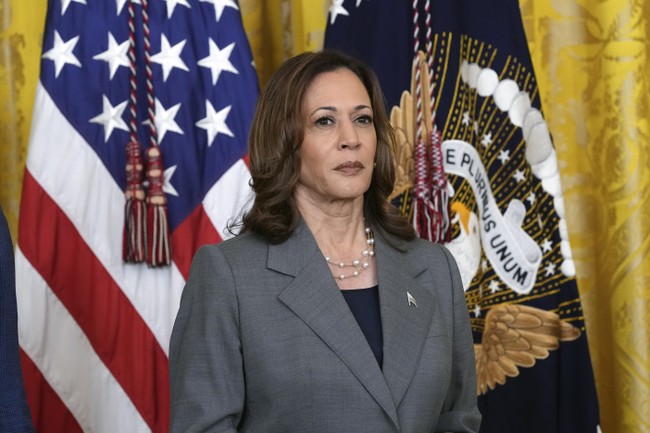
This article was originally published on American Conservative. You can read the original article HERE

The United States is the most secure great power ever. Yet Washington policymakers have made the world unnecessarily dangerous for America. They have created enemies of the U.S. around the globe.
Commonly cited as threats are Russia, China, Iran, and North Korea, which are increasingly cooperating and targeting U.S. interests and forces. Scores of other governments see Washington as a bully and resist its dictates. Terrorists actively seek to capture and kill Americans. As a result, U.S. citizens are at global risk.
The former president Donald Trump recognized the problem when he recently complained that Democrats “allowed China and Russia to do the impossible: combine. They’re natural enemies. They always have been because China needs more land and Russia has it.” He went on to blame “Obama—it started with him and then Biden because he didn’t know what the hell he was doing—they’ve now become one force.”
Trump is right about Barack Obama and Joe Biden. Nevertheless, he also is at fault, perhaps even more than them. So is George W. Bush, the worst president in the last half century, who is responsible for hundreds of thousands of civilian deaths in Iraq and elsewhere. That said, Bill Clinton began the process of turning Moscow hostile and encouraging it to ally with Beijing against America. At least Trump may have learned something, given his apparently newfound concern about turning the People’s Republic of China and Russian Federation into “one force.”
Absent Washington’s penchant for “running the world,” as Biden put it, most other countries and peoples would leave America alone. That doesn’t mean foreign events don’t have domestic impacts. Yet a superpower that dominates its hemisphere, is protected by two vast oceans, has only two weak land neighbors, and possesses the world’s largest economy is secure against all but the most grievous threats, in this case nuclear-tipped intercontinental ballistic missiles. This danger is best met by avoiding unnecessary conflicts, especially with powers armed with ICBMs and nuclear weapons.
Of course, members of the War Party routinely insist that, as the Daily Telegraph’s Jake Wallis Simons wrote, “if you shun conflict, it will come for you on the enemy’s terms.” This argument ignores how decades of maladroit, counterproductive, and deadly U.S. intervention turned countries and peoples against America and its allies. For instance, Simons seems disappointed that Washington didn’t attack Tehran years ago, but Iran is a good example of U.S. and allied blundering. Although Western officials claim to support democracy, in 1953 Washington joined London in supporting a coup in Iran that yielded the repressive autocracy of the Shah, which in turn spawned a revolution in which radical Islamist forces gained power. After decades of U.S. administrations threatening military action against, imposing sanctions on, and backing enemies of Iran, the Tehran regime remains unremittingly hostile.
North Korea would pay no attention to America were the latter not continuing to defend the South and threaten the North. Indeed, only a few years ago the Democratic People’s Republic of Korea was interested in forging a better relationship with the U.S. to help balance against its giant “friends,” the PRC and Russia. So concerned was China by that possibility that Xi Jinping rushed to meet Kim Jong-un for the first time after Kim and Trump announced their summit. Indeed, absent Washington’s threat to wage war on the DPRK, the latter would have no reason to develop ICBMs capable of targeting American cities. Pyongyang wants a deterrent because it faces real threats.
Similar is the case of terrorism. Contra the nonsense spouted by the Bush administration when it launched the era of endless wars, the U.S. is not targeted because Americans are so free, benevolent, liberal, and all-around wonderful. It is because the U.S. government is actively and violently engaged around the world, overthrowing some regimes, underwriting other ones, starving civilians to punish their governments (since “we think the price is worth it”!), droning, bombing, invading, and occupying countries on Uncle Sam’s naughty list, treating foreign social engineering as an American birthright. Defend such policies if you wish—by explaining how killing Syrians, Afghans, Iraqis, Pakistanis, Yemenis, Russians, and many other people makes the U.S. safer—but count the cost when doing so. Deadly blowback is inevitable.
The forgoing adversaries, however, are minor compared to Moscow and Beijing. The former is a great power with a nuclear force matching America’s. The latter is an incipient superpower, capable of competing in the economic, technological, and diplomatic as well as military realms. While the two governments really aren’t “one force,” given their divergent interests and the PRC’s extensive economic ties with the West, they are cooperating to thwart Washington’s global pretensions. And the two complement each other, creating something more than the sum of its parts.
The Chinese-Russian entente is largely a creature of U.S. and allied policy. Czarist Russia was as willing as the other European powers, Japan, and America to take advantage of Chinese weakness during the so-called “Century of Humiliation.” Relations between the Soviet Union and PRC went from bad to worse in the 1950s and 1960s: Moscow eventually considered launching nuclear strikes against China. President Richard Nixon’s 1972 trip to the PRC dramatically exploited the Soviet–Chinese break. Russian-Chinese relations improved as the Cold War ebbed, but the two states were still not natural allies.
Although the two governments have officially settled their border disputes, there remains talk in China about revisiting oppressive 19th-century treaties that forced territorial concessions to Imperial Russia. Moreover, the vast population disparity between Russia and China in Siberia and the far east inflames Russian fears of natural geographic absorption by the PRC. In Central Asia, Moscow has been losing ground to Beijing in the competition for influence and resources. Xi has ruthlessly exploited China’s advantageous position in dealing with its heavily sanctioned neighbor. As a result, Moscow increasingly looks like the “little brother” in the relationship. Yet Russia’s recent tight embrace of Pyongyang, with the promise of so far unspecified aid, has unsettled China.
In short, though Putin and Xi have met more than 40 times and invested much in the relationship, the two governments’ “no limits” partnership looks anything but. Beijing is especially unhappy that its partner brought a war into the relationship. Nevertheless, Washington’s hostile policy to both states leaves them with no good alternative. As long as the U.S. is seeking to impose its will, doing its best to hamstring the Chinese economy and defeat the Russian military, Beijing and Moscow are likely to continue their partnership.
Washington should shift course. Its ambitions should be modest, since improving relations with today’s adversaries will be difficult: Hostilities are endemic, grievances are deep, distrust is pervasive, and threats are explosive. Nevertheless, the U.S. should begin to disengage politically and withdraw militarily. For instance, whatever the past justification for promiscuously intervening in the Middle East, there is none today. The oil market is more diverse, the U.S. is a major energy producer, and Israel is a regional superpower. Attempting to fix the region’s broken states is a fool’s errand, unattainable and of little value even if achieved.
As for Northeast Asia, let the Republic of Korea defend itself. The US should gradually withdraw its troops and drop the “mutual” defense treaty. The two governments still should cooperate on shared interests, but that does not warrant the U.S. risking war on the ROK’s behalf. Especially when a conflict could go nuclear as the DPRK develops its own nuclear deterrent.
Given Seoul’s lengthy dependence on the US military, Washington should step away deliberately, working with the South as it takes over responsibility for its defense. Ending Washington’s security guarantee might spur the ROK to develop its own nuclear weapons, a potentially unfortunate development, but still better than U.S. presidents risking Washington and Los Angeles for Seoul and Busan. Kim would have little reason to challenge America if it were not targeting him.
As for Russia and China, at a minimum Washington policymakers should stop pushing the two regimes together. Although there is a case for attempting to deny some critical technologies to the PRC, the U.S. and its allies should not seek to more broadly decouple investment and trade relations with China. Doing so would cause significant economic damage to both countries, as well as many others. Moreover, greater isolation would reinforce Chinese factions most hostile to America while reducing pressure on the regime to moderate its geopolitical objectives.
Subscribe Today
Get daily emails in your inbox
Even more, the U.S. and Europe should seek to end the war in Ukraine and draw Moscow back into the Western economic and political order. Geopolitically, Russia has become the most active adversary of American interests worldwide, working with Iran and North Korea as well as China, intervening militarily in Africa and the Middle East, increasing economic and political ties with India, and winning support in the Global South. Particularly threatening is Moscow’s potential for transforming the international nuclear balance. Russia has much it could give to Pyongyang, depending on Kim Jong-un’s demands and Vladimir Putin’s inclinations. Warned Victor Cha of the Center for Strategic and International Studies: “Kim wants advanced telemetry, nuclear submarine technology, military satellite wares, and advanced intercontinental ballistic missile (ICBM) technology.” Imagine a North Korean nuclear arsenal in the hundreds transported by a fleet of ICBMs topped with multiple independently targetable reentry vehicles (warheads).
Today America should consider switching great power dance partners. Moscow seems more likely to shift and lean toward if not join the western coalition. Russia makes no pretense of being communist, cannot challenge the U.S. for global leadership, will forever be China’s junior partner, historically and culturally leans West, faces greater long-term challenges from the PRC than Europe, and retains substantial infrastructure-supporting investment by and trade with the latter. Possible, though not easy, would be a gradual warming with Moscow and reconstruction of its economic and political ties with Europe. In any case, Washington should stop pushing China and Russia together, and act sooner rather than later.
Trump is right. Democratic politicians foolishly pushed Beijing and Moscow together. But so did Republican politicians. And all manner of think-tankers, journalists, political activists, and government officials. The Washington Blob, as it is known, has been at its arrogant worst in creating adversaries for America. Reversing course should be a priority for whoever wins in November.
This article was originally published by American Conservative. We only curate news from sources that align with the core values of our intended conservative audience. If you like the news you read here we encourage you to utilize the original sources for even more great news and opinions you can trust!










Comments